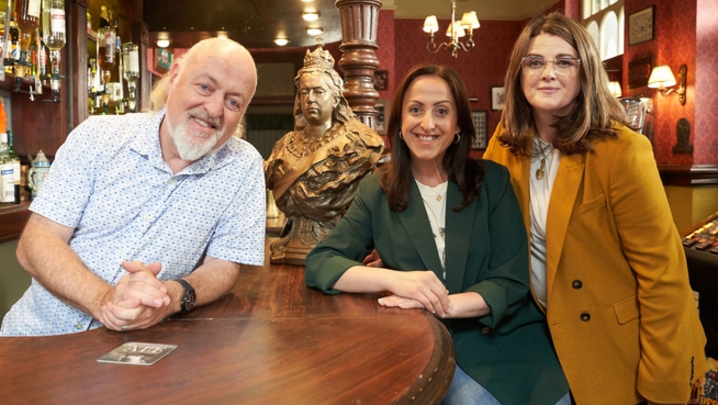Cutting a TV programme’s carbon footprint can save production companies thousands of pounds – and at the same time help the environment.
This was the “win-win” message that Aaron Matthews – project manager at Albert, television’s sustainability initiative – brought to an RTS London meeting at the end of March.
Matthews explained that Albert certification – demonstrated by a logo displayed on a programme’s end credits – is proof that a “production has implemented sustainability best practice”.
Certification brings an average 10-15% reduction in a programme’s carbon footprint and a saving of £6,000 in energy and other costs. “On bigger production budgets such as in drama you might save £50-60,000,” he revealed.
Albert’s certification scheme promotes greener ways of working in TV and film by rewarding productions for implementing sustainable working practices and cutting their carbon footprint.
The last series of Peaky Blinders, which achieved a top-rated, three-star Albert rating, was the greenest to date. To reduce its carbon footprint, the BBC Two gangster series used LED lighting in the studio and on location, worked with local crew to reduce travel, and hired props and costumes.
The TV industry is not one of the worst environmental offenders. “We’re not that terrible – we’re not the aviation industry, we’re not putting diesel in rivers or acid in fields,” said Matthews.
But television has a few areas where it could focus its efforts. “We use a huge amount of data,” he continued. “We have large buildings that are very energy intensive; for drama and comedy productions, we’re physically building sets.”
And, modern ways of watching telly are less green. “The best way you can get your content to your audience is beaming it from a Crystal Palace-style antenna and getting everyone to watch it at the same time,” revealed Matthews.
“The worst thing we can do is encouraging people to watch it through the internet and on [mobile] devices – that pretty much increases the carbon footprint fivefold.”
The carbon footprint of producing one hour of TV averages 12.9 tonnes of carbon dioxide, a figure that includes Co2 generated by studio power, travel, hotel accommodation and catering. “For every tonne of Co2 that we put up into the atmosphere we lose 3 cubic metres of Arctic sea ice,” revealed Matthews.
At broadcasters, including the BBC, Channel 4, ITV and Sky, producers are required to calculate the carbon footprint of their output. “The information is most important to the programme-makers – the people who [decide] what supplier to use and can implement changes,” said Matthews.
TV’s greenest programming is the multi-day coverage of events such as Wimbledon or Glastonbury, which gives many hours of telly relative to the production process; the least green, ironically perhaps, are the landmark natural history productions like Blue Planet, which warn of the damage climate change is wreaking on the planet.
Originally, Albert was a carbon calculator created by the BBC, but the initiative has grown in scope and size. Now it is managed by Bafta’s Albert consortium, which is composed of 14 of the UK’s largest broadcasters and producers, including the BBC, ITV, Sky, NBC Universal and Endemol Shine. It provides the TV and film industries with the advice and tools to become more environmentally sustainability.
But broadcasters can also spread the green message on-screen, argued Matthews. “EastEnders, Coronation Street and Emmerdale have integrated sustainability storylines into the programme editorial,” he said.
“The continuing dramas understand well the impact they have on society. Normalising [green behaviour] on-screen is probably the most significant thing that they can do to reduce the overall carbon footprint.”
“Albert: making media in a sustainable future” was held at ITV London Studios on 21 March. Muki Kulhan chaired and Terry Marsh produced the event










